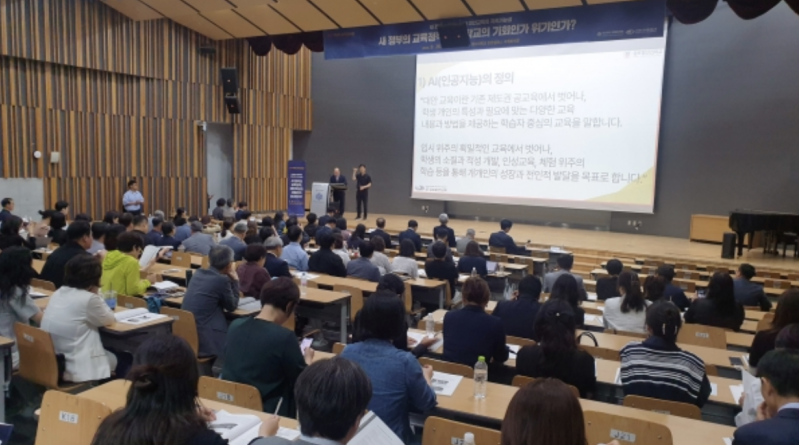
Education leaders in South Korea gathered Sept. 26 to discuss ways to sustain alternative schools, highlighting the need for stable financial support while preserving the schools’ unique identities.
The third Education Mission Forum, held at Myongji University in Seoul, was organized by the university’s Education Mission Center and Global Vision Christian School under the theme “New Government Education Policy and the Sustainability of Alternative Education,” according to reporting by Christian Daily Korea.
Alternative schools, often established by Christian groups, operate outside the mainstream public system and aim to provide education tailored to students’ individual needs. The Christian community, which first introduced and helped establish modern education in Korea, has played a key role in this movement and continues to implement “Christian education” through many alternative schools.
Despite recent legal recognition, participants said challenges remain, including unclear funding and limits on accreditation and registration.
Professor Ham Seung-soo of Myongji University’s Graduate School of Education, who heads the Education Mission Center, said the legal framework secured the status of alternative education as part of the public system and created a foundation for their operation. But he noted, “After legalization, unresolved issues remain such as unclear financial support and practical constraints in accreditation and registration. Concrete and systematic support policies are required.”
Ham said the most pressing task is securing long-term sustainability through financial measures. He highlighted the proposed education voucher system as a practical solution, allowing institutions to maintain autonomy while ensuring stable funding. Vouchers would be given directly to students, who could use them to attend alternative schools, channeling financial support through parental choice.
“Alternative education leaders see the voucher system as a key policy to guarantee sustainability, provide parents and students with more learning options, and preserve the schools’ distinctive educational identity,” Ham said. He added that voucher-based support, unlike direct state funding, would allow schools to remain independent while enhancing stability.
The forum also featured a keynote speech from Nam Jin-seok, chairman and founder of Global Vision Christian School. Presentations and responses were given by Lee In-hee, principal of Dream School; Jang Han-seop, principal of Story School and adjunct professor at Chongshin University; and Lee Eun-sil, professor at Handong Global University.
Opening remarks were delivered by Myongji University President Lim Yeon-su. Rev. Kim Joseph, chairman of Joongang Christian School and director of Myongji Educational Foundation, offered words of encouragement, and Rep. Cho Jung-hoon of the People Power Party, a member of the National Assembly Education Committee, gave a congratulatory address.
“Educational diversity is not a choice but a responsibility,” Cho said. “When only one path is imposed, society stagnates and children’s potential is narrowed. Alternative education is a creative experiment and a public good that enriches our society while complementing public education.”
He added that when alternative education becomes a core pillar of Korean education rather than a “special option,” children will be able to learn freely and grow responsibly.





